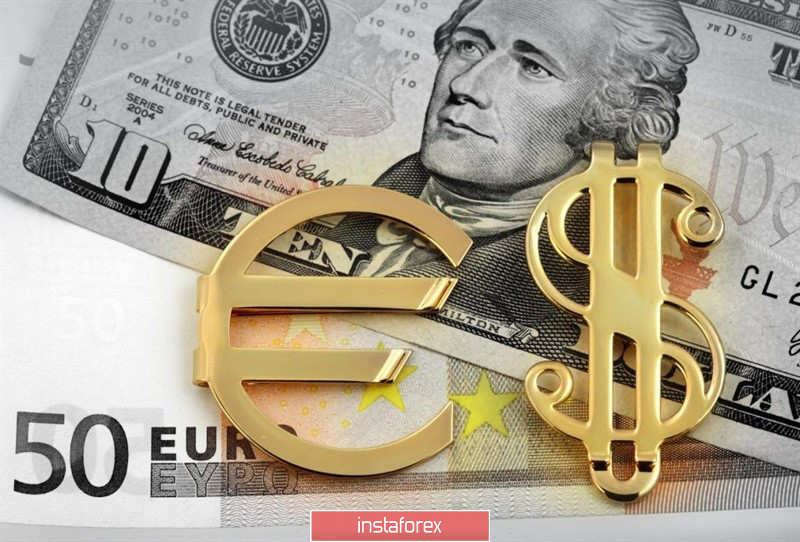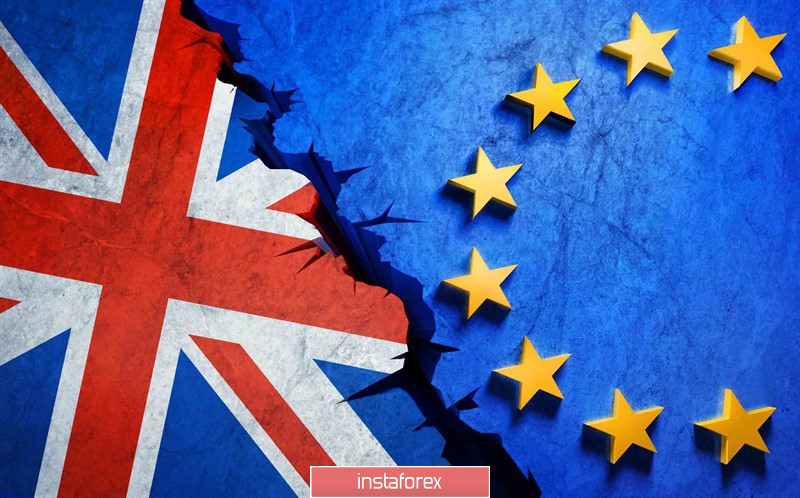
What is more important at the moment for financial markets: monetary policy or trade conflicts? What events will they most vigorously respond to: the publication of the minutes of the September meetings of the FOMC and the Governing Council of the ECB or the resumption of trade negotiations between Washington and Beijing?
According to a survey recently conducted by BofA Merrill Lynch among large investors, 40% of respondents consider trade war to be the main threat to financial markets, and only 13% consider ineffective monetary policy as the main risk. It is believed that the dovish rhetoric of the Federal Reserve can weaken the US dollar only temporarily, since the demand for the greenback will still remain high due to its status as a safe-haven.
Goldman Sachs estimates that US President Donald Trump's "tweets" related to trade disputes have reduced the estimated yield on futures on the federal funds rate by approximately 60 basis points, while due to criticism from the head of the White House to the Fed, the figure decreased by only 10 basis points.
At the end of this week, another round of US-Chinese trade negotiations in Washington is due to take place.
Beijing has already warned that it does not intend to revise its industrial policy and approach to government subsidies, but expressed its willingness to partially conclude a deal on already agreed issues, such as the purchase of American agricultural products.
The USD/JPY pair sharply grew on the assumption that the US president could seize on this proposal in order to divert attention from the impeachment procedure and strengthen the stock market. The main question is whether the United States will ease its tariff regime. This step may initiate the USD/JPY rally, especially amid lower expectations for the Fed's monetary easing. However, if America rejects the peace pipe and tries to squeeze more serious concessions from China by refusing to abolish tariffs, the greenback will quickly lose all its profits against the yen.

D. Trump has reiterated that he is ready to consider only a comprehensive agreement with China. Apparently, he continues to hold this view. Meanwhile, White House Chief Economic Adviser Larry Kudlow noted that Washington is open for a short-term deal if at some point a plan for resolving structural issues is visible. He also praised Beijing for having recently become a bit more active, as evidenced by increased purchases of agricultural products in the United States.
Based on the fact that the influence of monetary policy on financial markets is gradually weakening, the muffled reaction of the EUR/USD pair to the publication of the minutes of the September FOMC meeting is unlikely to be surprising. At the last meeting, the Federal Reserve lowered the interest rate by 25 basis points and could well discuss the idea of completing preventive measures, but then the regulator did not yet know about a serious drop in business activity in the United States. In this regard, the split in the ranks of the Governing Council of the ECB seems to be a more significant event than the hawkish rhetoric of the Fed. Therefore, EUR/USD going beyond the short-term consolidation range of 1.096–1.1 may be short-lived. The bulls may take advantage of the reduction in quotes for purchases on expectations of the limited potential for monetary expansion by the ECB, while the bears may resort to sales on growth in the hope that there will be no progress in the trade negotiations between Washington and Beijing.
Meanwhile, the absence of a compromise solution on Brexit that would suit three parties (Britain, Ireland and the European Union) is becoming increasingly critical for financial markets as the deadline for the release of Great Britain from the EU approaches (October 31).

The High Civil Court of Scotland ruled that British Prime Minister Boris Johnson is not obliged to ask the EU for the transfer of Brexit. He noted that the head of government agreed to abide by the law, so there is no need for coercive measures. Investors were disappointed with this, because a positive decision would have ruled out the hard Brexit scenario. Now we have to find out whether B. Johnson will remain true to his word: the ball is now on the side of the EU, since he proposed his own version of the deal.
According to The Daily Telegraph, the British Cabinet intends to veto the seven-year budget of the EU, which should be adopted in March next year, as well as refuse to cooperate with the EU in the field of defense and security if Brussels refuses the proposed B. Johnson deal or not will allow him to hold a hard Brexit.
Reaching an agreement between the United Kingdom and the EU on Brexit has become virtually impossible after a telephone conversation this morning between British Prime Minister Boris Johnson and German Chancellor Angela Merkel, the BBC television channel reported with reference to a source in the office of the British prime minister.
B. Johnson presented the German chancellor with the proposals that the EU had recently submitted, however, A. Merkel made it clear that an agreement on their basis is unlikely.
She stated that a Brexit deal was possible only if Northern Ireland remained in the EU customs union.
"A similar demand from Berlin makes a deal impossible. Thus, the negotiations in Brussels are close to a breakdown, despite the fact that the UK has come a long way," the prime minister said in an office.
Against this background, the GBP/USD pair fell to weekly lows in the 1.2210 area.
Brexit is running out of time until the next deadline, so pressure on the British currency is likely to increase.





















